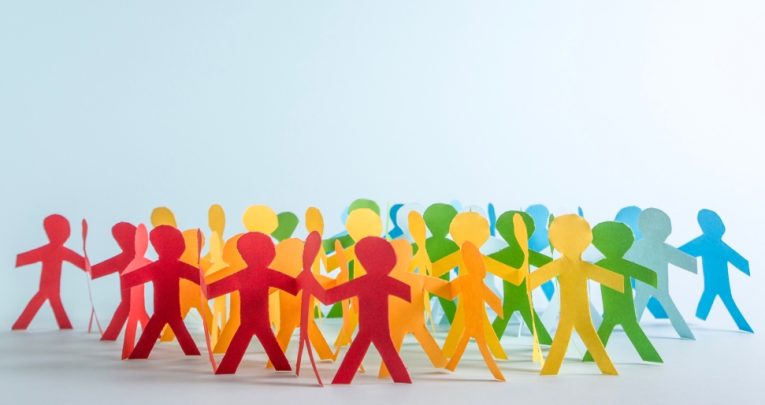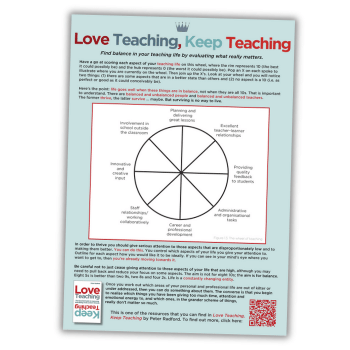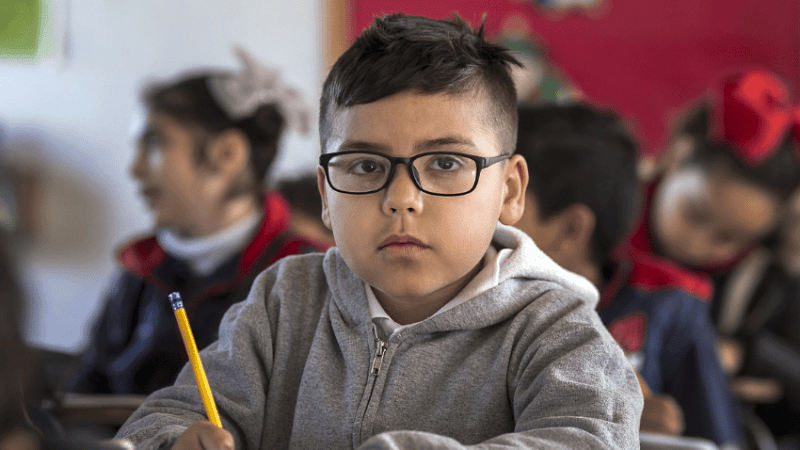“Don’t say ‘straight’ when you mean ‘heterosexual’” – Schools, homophobia and why language matters

Jonathan Charlesworth explores the importance of language when it comes to supporting lesbian, gay, bisexual and transgender pupils in secondary schools…

In September this year, the Daily Telegraph reported that “From next summer, secondary schools in which children do not learn about same-sex, transgender and bisexual couples are likely to have their leadership judged as ‘requires improvement’ by inspectors.”
That being the case, many will be eager to revisit how best to support lesbian, gay and bisexual pupils in their school and determined to challenge homophobic and biphobic bullying. Any such plans will involve revising policies and practices, but where’s the best place to start?
Getting the words right
If you haven’t already, I’d urge readers to convene a few student engagement sessions. While it’s tempting to seek the counsel of your more articulate Y11s, I’d suggest you make your first port of call your Y7s – you’ll find them to be a surprisingly enlightened source of invaluable information.
After that, move through the year groups, gathering a mix of contemporaneous experience as you go, concluding with input from your sixth formers where applicable. You’ll also want to speak and write using language that’s readily understood and accepted around your school, employing a lexicon used by numerous bodies and agencies such as the NHS, social services, CAMHS and teaching unions.
Words to describe sexuality include ‘heterosexual’, ‘lesbian’, ‘gay’ and ‘bisexual’. ‘Transgender’ (‘trans’ is widely used and accepted) describes matters relating to gender identity, and it’s important to speak with your pupils about this topic too. I’d recommend undertaking this work separately, however, as there are discrete issues concerning gender identity that warrant their own conversations and focus.
Once you’re confident that you understand the literal and historic background of the aforementioned words, organise your pupil engagement sessions. If you decide that your school needs to amend its vocabulary, now is your opportunity to explore this.
It’s important that we ‘get the words right’ for a number of reasons. For a start, if we’re using such words subjectively, confusion will reign and potentially result in pupils and staff alike getting upset upon hearing words they consider to be offensive. Don’t say ‘straight’ when you mean ‘heterosexual’, because what’s the opposite of straight? Bent, right? Not good. Avoid ‘dyke’ as a synonym for lesbian, and at all costs avoid using ‘queer’ to mean lesbian, gay, bisexual or transgender people collectively.
Emotional potency
Let’s pause for a moment to consider the emotional potency that certain words can have. How often have you heard the term ‘the ‘N’ word’ used by people anxious to avoid offence by saying the word in full? The potency of that particular word was recently illustrated when the BBC’s regional news programme Points West generated national headlines, after one of its (white) reporters repeated verbatim verbal abuse used during a racially-aggravated attack.
A term that’s used much more ambiguously in wider society is ‘queer’. It’s a word that’s politically charged, prompting visceral reactions and outrage from many, but one that’s also fulsomely embraced by others, particularly the young and sections of the media. Some users maintain they’ve reclaimed it. Others believe that by deploying it they’re being inclusive and respectful of diversity.
Now, in this former English teacher’s understanding, words beginning with ‘re’ describe something occurring again – reissue, revise, rewrite. It follows that to reclaim something, it has to have been yours in the first place.
Gay and transgender people didn’t originally coin the term ‘queer’ to define or describe themselves. Certain heterosexual people did that to denote their loathing of, and disrespect for, lesbian, gay, bisexual and transgender people. If someone wishes to now adopt or appropriate ‘queer’ for their own purposes, that’s their choice. But I’d implore you to never include it in your school’s policy, or use it the belief that you’re being in any way ‘inclusive’ or worse, ‘woke’.
By the same token, if a woman – or, indeed, a teenage girl – chooses to call herself a ‘dyke’ that’s entirely her prerogative, but again, don’t include it in your school policy, as doing so amounts to granting licence to all and sundry to call any lesbian girl or woman a dyke. And there will be many gay girls and women left thoroughly unimpressed by that happening to them.
Trending
Defence and justification
Surrounding all this is the fact that language is, literally, policed. Should someone maliciously call an individual or a group any combination of ‘queer’, ‘dyke’, ‘faggot’, ‘batty boy’, ‘lezzer’, ‘poof’ or ‘trannie’, that will amount to a hate incident or, depending on the circumstances, potentially a hate crime. Stick to the far less emotive adjectives and nouns of ‘heterosexual’, ‘lesbian’, ‘gay’, ‘bisexual’ and ‘transgender’.
While we’re on the topic of ‘words best avoided’, using ‘heterosexual’ is preferable to using ‘straight’. Straight’s antonyms include bent, crooked, warped – hardly helpful to any lesbian, gay or bisexual young people wanting to maintain their self-respect whilst navigating their emerging sexuality, however outwardly self-confident many might appear to be. Often, that’s because they feel they need to be.
Interestingly, of the hundreds of children and young people in urban, suburban and rural settings that I interviewed for my book How To Stop Homophobic and Biphobic Bullying, the vast majority who agreed to talk to me were white. And if a student was Asian they would invariably be a girl. Time after time I heard pupils say that being out as lesbian, gay or bisexual meant having to constantly explain, defend and justify themselves in response to questions like ‘How do you know you’re gay?’
“It’s like you’ve got to be a world expert on all things LGBT+, and if you don’t know all the answers to the questions you’re being bombarded with, then you’re faking it for attention. It’s exhausting,” sighed one Y10 girl to whom I spoke.
That sentiment was reflected in many of the schools I visited. “Kids aren’t stupid” There was also the recurring sense that what SLT thought was happening in their school or college didn’t match pupils’ lived experience. “Kids aren’t stupid,” I heard one Y11 boy fume. “They know to keep schtum when there are teachers about. It’s when we’re on our own that they lay into you with their snide insults and personal remarks. If you report it, things escalate quickly and go to places you never wanted them to, with parents getting involved and control being removed from your hands. Sometimes it’s just easier to avoid all that aggro.”
Challenging homophobic bullying effectively will help pave the way for other forms of school bullying to fall away and eventually be rejected by your pupils. For those based in schools which remain operational amid the COVID-19 pandemic, talk to colleagues about what Ofsted’s stipulations will mean for you. Do you feel that your school is fully prepared to be appraised and assessed without any changes to its existing practices or policies?
Clarity of language
Across the areas of criminal justice, child protection and education, you’ll find an array of bodies, organisations and agencies that make their use of LGBT terminology very clear in both their policies and practice.
It’s helpful for schools to maintain consistency and continuity with wraparound services in order to promote shared understanding and mutual respect. Simple, universal terms are vital, especially for pupils with ESL. To assist with this, a page-length glossary produced by EACH containing clear definitions for 13 gender identity and sexuality terms can be downloaded from here.
Jonathan Charlesworth is the executive director of the charity Educational Action Challenging Homophobia (EACH), delivering training, consultancy and resources on LGBT+ matters to the corporate, statutory and charity sectors, and author of the book How To Stop Homophobic and Biphobic Bullying: A practical whole-school approach (Jessica Kingsley Publishers £19.99); for more information, visit each.education or follow @EACH_UK











